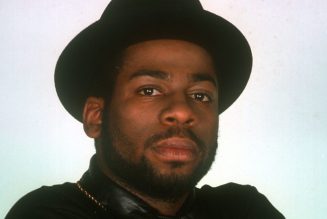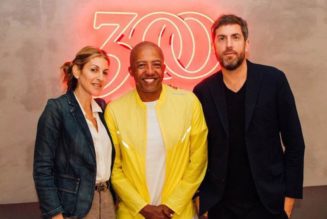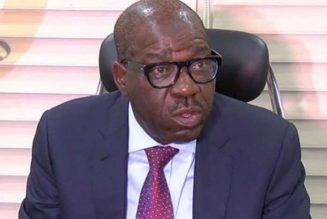Arts
Green art: How young people used art, poetry to tell Africa’s climate story
Friday September 08 2023

Ndereva Mutua, 26, a Nairobi-based artist painting at the Green Park Terminus in Nairobi. He uses his art to tell African climate stories. PHOTO | POOL
After calls for an end to fossil fuel extraction during the African Climate Summit in Nairobi, it was time to try a different strategy to create awareness. Ndereva Mutua, 26, a painter, did not shy away from this golden opportunity.
“I was up as early as 5am because the government had announced that they would close a number of roads. I wanted to beat traffic so that I get some good space to showcase my paintings in real-time,” he said.
He was working on a portrait of the face of an African woman.
“Women are motherly and so is nature, the green on her beautiful face depicts our environment. You notice her face becomes sullen, she becomes unhappy as the green starts to vanish, this is what the climate crisis is doing to our mothers, sisters and women,” he said.
Mr Ndereva, who is referred to as ‘MutuaArts’ on social media where he sells his paintings said he has seen how climate change has affected his village.
“I have seen what the constant search for water in my village in Ukambani is doing to us,” he told BDLife.
For Mr Ndereva and many contemporary African artists like Teardrop, Juliani, Yaba, Liboi, Dorphage, Willie Oeba, Shari Africa, G cho Pevu, Kake, Coptell, Bena 3, Micko Magra, Nelmo, Cricket, Kamore, Javan The Poet, Ndoto Zetu Kids and DHC(Dash, Jonte, Dbouy Gush, Sigingi andRamsizo), there is immense power in word, delivered in the form they know best that will make many people stop and reflect on the consequences of their actions.
Like Ndereva, Crickets took the stage to showcase his poetry prowess.
“Waangari Mathaai akijua Uhuru Park siku hizi inaitwa ‘Ushuru Park’?” Crickets posed to the cheering crowd.
“Polisi siku hizi wamekuwa photographers wanacapture clear shots huku teargas ikipollute the air,” he continued hitting out to the recent bouts of protests that have rocked the country.
“I feel so overjoyed being here. As young people we want to be heard, we are living through a devastating climate crisis that has resulted in many of us being jobless and stressed,” he said after his performance.
“I hope our leaders use this climate summit to get us the green jobs they keep talking about. They must remember that the future belongs to us which is why we need to be at that decision-making table,” Mary Wambua from Dandora, Nairobi said.
During the summit, African Civil Societies (CSOs) released a statement dubbed ‘The African People Declaration 2023’.
“Africa is the least responsible for climate change, yet it has faced centuries of oppression and immense climate-induced challenges. We cannot secure climate justice within the boundaries of a broken system, we need a reversal of global financial flows,” they said.
They highlighted that they rejected eight things.
“Fossil fuels which must remain in the ground, carbon markets and offsets, which are in reality pollution permits for corporations and wealthy countries to continue polluting, geoengineering which represents the ultimate dangerous distraction and must be firmly rejected and green hydrogen for export is a neo-colonial extraction of African freshwater resources,” the declaration noted.
They are also pushing for “debt restructuring and incremental financial reforms which we see as superficial band-aid solutions that in reality perpetuate the external debt trap.”









